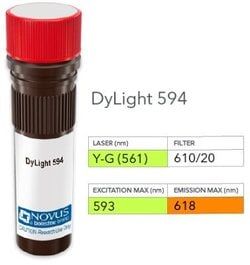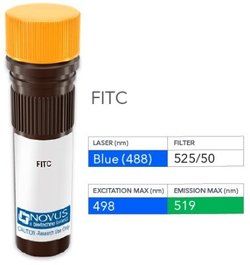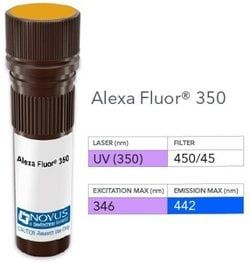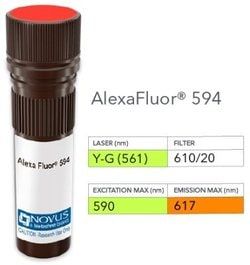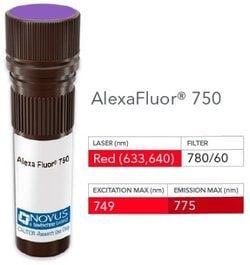Melan-A/MART-1 Antibody (M2-7C10), FITC, Novus Biologicals™
Manufacturer: Novus Biologicals
Select a Size
| Pack Size | SKU | Availability | Price |
|---|---|---|---|
| Each of 1 | NB005699-Each-of-1 | In Stock | ₹ 57,494.00 |
NB005699 - Each of 1
In Stock
Quantity
1
Base Price: ₹ 57,494.00
GST (18%): ₹ 10,348.92
Total Price: ₹ 67,842.92
Antigen
Melan-A/MART-1
Classification
Monoclonal
Conjugate
FITC
Formulation
PBS with 0.05% Sodium Azide
Gene Symbols
MLANA
Immunogen
Recombinant Melan-A/MART-1 protein (Uniprot: Q16655)
Quantity
0.1 mL
Research Discipline
Cell Biology, Cellular Markers, Immunology
Test Specificity
This antibody recognizes a protein doublet of 20-22kDa, identified as MART-1 (Melanoma Antigen Recognized by T cells 1) or Melan-A. MART-1 is a newly identified melanocyte differentiation antigen recognized by autologous cytotoxic T lymphocytes. Seven other melanoma associated antigens recognized by autologous cytotoxic T cells include MAGE-1, MAGE-3, tyrosinase, gp100, gp75, BAGE-1, and GAGE-1. Subcellular fractionation shows that MART-1 is present in melanosomes and endoplasmic reticulum. This monoclonal antibody labels melanomas and other tumors showing melanocytic differentiation. It is also a useful positive-marker for angiomyolipomas. It does not stain tumor cells of epithelial, lymphoid, glial, or mesenchymal origin.
Content And Storage
Store at 4°C in the dark.
Applications
Flow Cytometry, Immunohistochemistry, Immunohistochemistry (Paraffin), Immunohistochemistry (Frozen), Immunofluorescence, Immunohistochemistry (Paraffin)
Clone
M2-7C10
Dilution
Flow Cytometry, Immunohistochemistry, Immunohistochemistry-Paraffin, Immunohistochemistry-Frozen
Gene Alias
Antigen LB39-AA, Antigen SK29-AA, Mart 1 Melan A, MART1MART-1, melan-A, melanoma antigen recognized by T-cells 1, Protein Melan-A
Host Species
Mouse
Purification Method
Protein A or G purified
Regulatory Status
RUO
Primary or Secondary
Primary
Target Species
Human, Mouse (Negative), Rat (Negative)
Isotype
IgG2b λ
Related Products
Description
- Melan-A/MART-1 Monoclonal specifically detects Melan-A/MART-1 in Human, Equine, Mouse (Negative), Rat (Negative) samples
- It is validated for Flow Cytometry, Immunohistochemistry, Immunohistochemistry-Paraffin, Immunohistochemistry-Frozen, Product Image.
